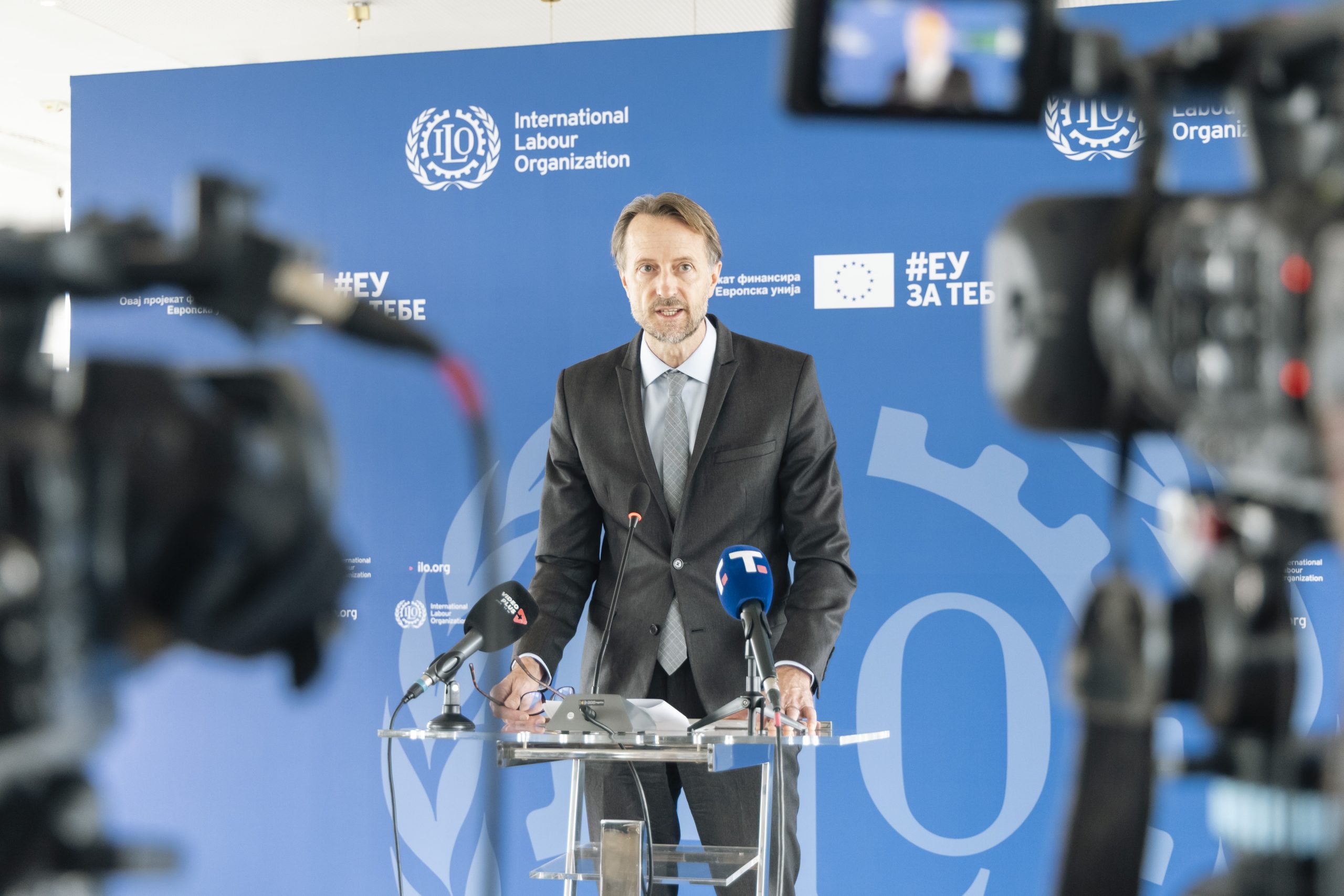Work-related injuries cost countries around the world four percent of global GDP in average, according to data from the International Labour Organization, which, in cooperation with Serbian institutions and European Union, has launched a new project aimed at improving working conditions and strengthening occupational safety systems.
The project, titled “Improving Occupational Safety and Health and Labour Inspection in Serbia” was presented in Belgrade on October 7, and its goal is to make workplaces in Serbia safer and healthier for all workers through the enhancement of legislation, development of modern software solutions, and procurement of vehicles for the Labour Inspectorate, with financial support from the EU.

Photo credit: MOR/Mitar Mitrović
At the project launch, the EU Ambassador to Serbia, Andreas von Beckerath, emphasized that all workers deserve a high level of protection and guaranteed safety so they can perform their jobs effectively.
“Worker safety rests on two parallel pillars – a strong legal framework and effective implementation on the ground through consistent oversight and quality inspections. That is why the EU launched this project, aimed at contributing to a more modern labour inspection system, better-equipped institutions, trained professionals, and social partners actively involved in creating a fairer and safer working environment,” said Ambassador von Beckerath.
Đorđe Todorov, State Secretary at the Ministry of Labour, highlighted that project represents a significant step toward modernizing the occupational safety system and aligning national legislation with EU standards.
“Safety and health at work must become part of the everyday culture in every workplace, not just a topic that arises when an accident occurs”, stated Todorov.

Photo credit: MOR/Mitar Mitrović
Claire Harasty, Director for Central and Eastern Europe at the International Labour Organization, noted that work-related accidents and illnesses result in a loss of approximately four percent of global GDP – which is a major economic burden that directly impacts national budgets and health insurance funds.
Harasty expressed concern about the situation in Serbia, where, according to Ministry of Labour, there were more than 14,000 workplace injuries in 2024 alone, including 1,567 serious injuries and 21 fatalities.
“These are not just numbers. They represent real people, families, and communities that have been negatively affected by unsafe working conditions. That is precisely why the goal of this project is to provide labour market institutions in Serbia with access to modern tools, knowledge, and resources to ensure better worker protection and promote compliance with legal obligations,” she stated.
The project, set to run until the end of 2027, aims to align national legislation with EU rules and International Labour Organization conventions, strengthen the capacity of the Labour Inspectorate, improve the E-Inspector information system, and establish an electronic registry of licensed occupational health and safety professionals.




